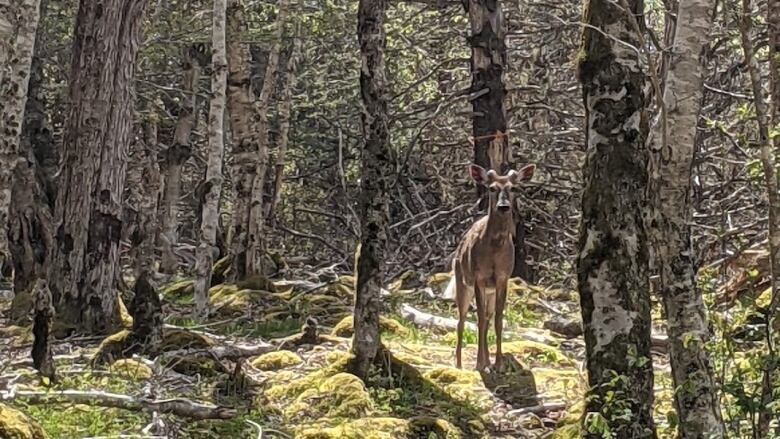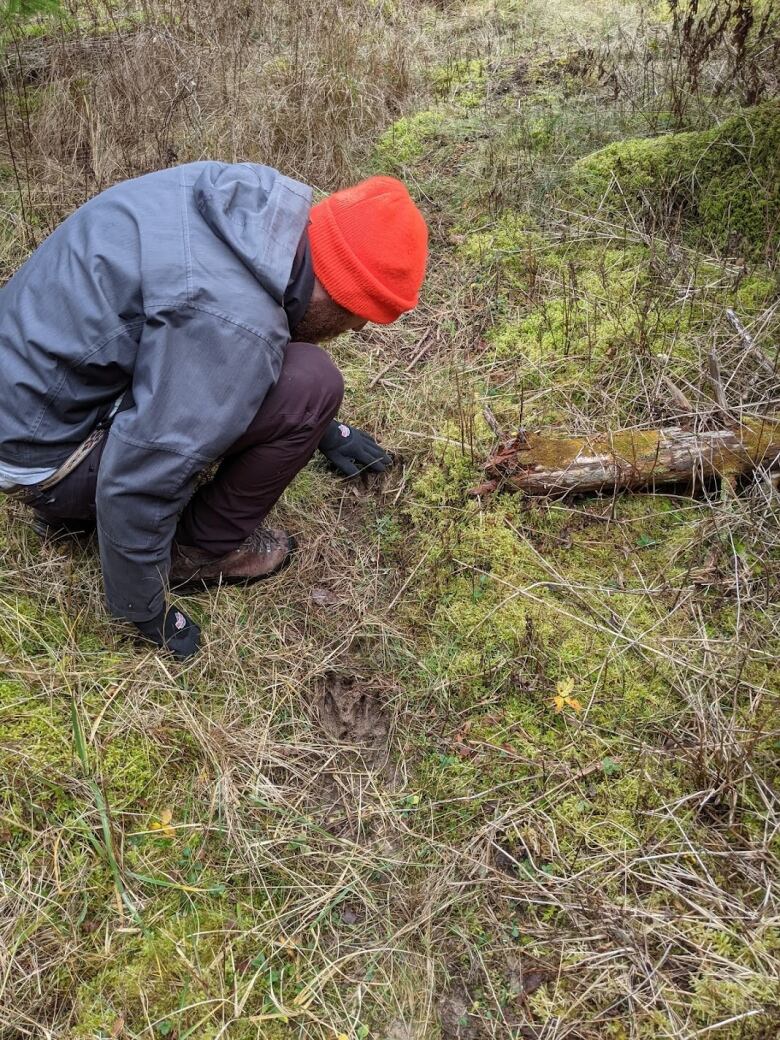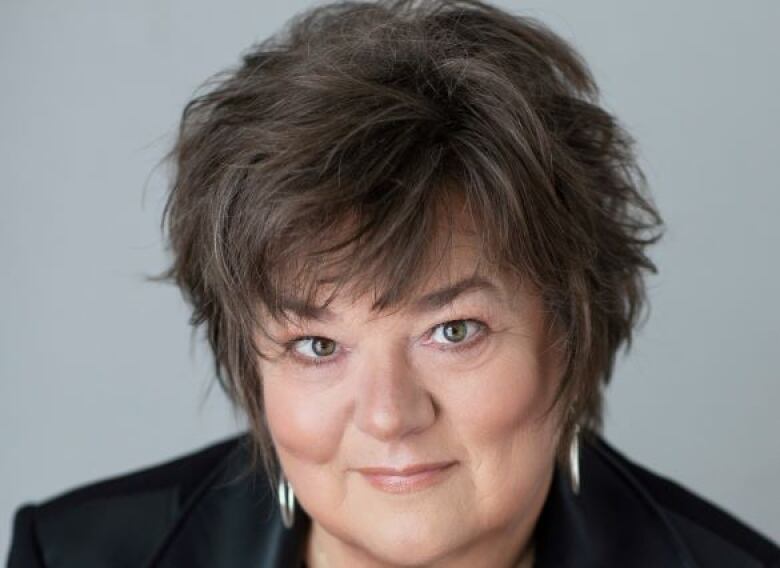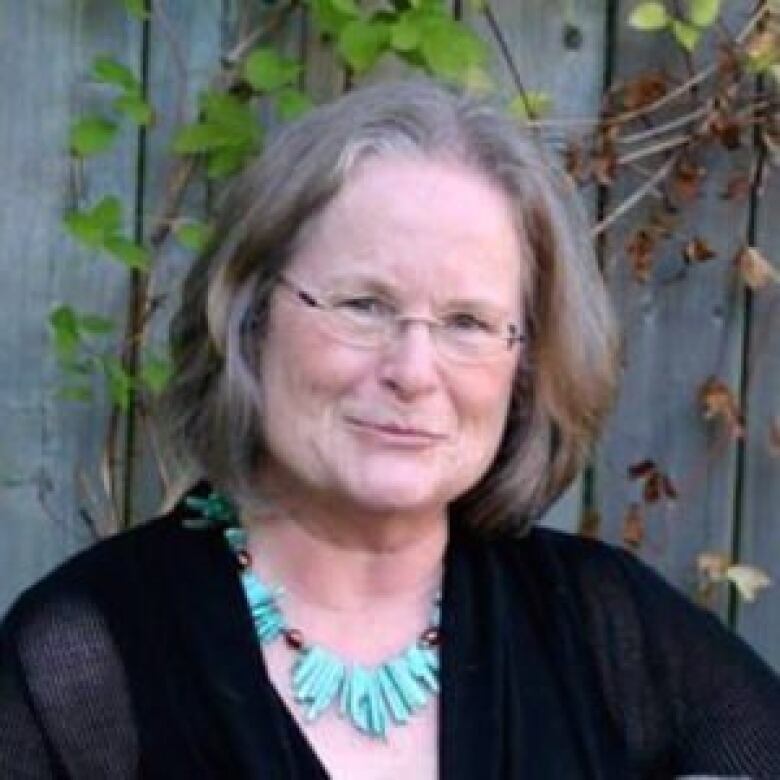Why tapping into your 5 senses with a walk in the woods can counter climate anxiety
Counsellors and nature offer ways to cope with eco-anxiety

Our planet is changing. So is our journalism. This story is part of a CBC News initiative entitled "Our Changing Planet" to show and explain the effects of climate change and what is being done about it.

Louisa Horne's shoulders dropas she steps into an arch of trees in the tranquil woodsa balm for the stressful bombardments of city life and the gloom of the eco-anxiety she sometimes feels.
A little over two years ago, the 62-year-old joined a conservation groupthat's aimingto preserve a 27-acre lakeshore site in the Halifax area, inhopes future generations can use it as a sanctuary from any environmental degradation that may happenelsewhere.
"These conservation sites are a destination," Horne said. "You would spend the afternoon, you'd take your picnic, you walk, you sit by the stream, you sit on a bench or listen to the birds. It's a therapeutic kind of experience."
As world leaders meet at the COP26 climate summit in Glasgow, increasingly, many are concernedeven stressedabout climate change.So much so that it's spawned a growing recognition of something known aseco-anxiety, or thechronic fear of environmental doom.

For Horne, getting out in naturegreatly helps, as does aiding in conservation efforts in her own backyard, like the work she does with this group.Recently, she volunteered to sift through newly gathered maps of the plants, insects, birds and soil at thesite, which sits on the shore of Brine Lake, just west of Halifax.
"I'm re-energized from the despair that you might have had about whatever you were listening to on the news," she said.
This summer, four students helped build the case to conserve the area by finding old trees and a well that no one knew existed in the dense woodland, home to an estimated more than 40 species of birds.
"You were basically bushwhacking to get through it," Horne recalled. "And lo and behold, on some of the transects, the students found apple trees and pear trees and a hazelnut tree, which was just a totally mind-blowing thing."
By conserving the space, Horne envisionsbeing able to watch, listen and feel the soil, as her grandchildren chase tadpoles, frogs and bunnies at the site.It ultimately raises her hopes for their future on this planet.

Nourishing the brain with nature
In her climate counselling and animal-assisted therapy practice in Dartmouth, N.S., registered counselling therapist Nancy Blairsays she is increasingly seeing people who rangefrom being fearful to terrified about the damage from climate change both worldwide and locally.
She points to a recent preprint studysubmitted to The Lancet by Caroline Hickman, at the University of Bath. Hickman, along with herBritish, Finnish and American co-authors, surveyed 10,000 people aged 16 to 25 in 10 different countries and found:
- 75 per cent said they were frightened by the future, due to climate change.
- 56 per cent thought humanity was doomed.
- 45 per cent said their feelings about climate changenegatively affected their daily life.
Blair says ecological anxiety is a rational and healthy response to what is happening in the world. And right now, it's piledon top of anxiety surrounding COVID-19.
Individuals may be suffering alone, she said, unaware that others are experiencing it, too. So getting involved in environmentally focused groups can help, even something as simple as so-calledclimate cafs, where people meet informally to talk about the climate crisis and share tips on reducing our carbon footprint.

Taking action based on your own daily habits and interestssuch as revelling in how a dog wants to meet neighbours during a walk outside, planting a pollinator-friendly garden or fighting the loss of habitat in your area are all empowering ways to fight hopelessness, she said.
Getting out in natureto hear, see, smell and feel everything it offers also commands our five senses in a way built environments don't, saidBlair.
"The brain likes to be creative," Blair told Dr. Brian Goldman, host of CBC's The Dose podcast. "It clears your mind, gives you energy and helps you to deal with what's going on."
By being mindful and in the moment, fears and anxieties about what could happen can melt away. "It's very nourishing," she said.
Building emotional resilience
Hickman describes eco- or climate anxiety as an emergent mental health issue;it's normal to have aresponse to environmental degradation, such as melting ice, wildfires and the deaths that followed the recent heat dome event inWestern Canada all escalating problems that create anxiety, shock and insecurity.
"What we found in our research is that the reason it's hurting is because it's causing a moral injury from something unfair,"said Hickman, who is a psychotherapist and co-member of the Climate Psychology Alliance, along withBlair.
"We cannot get away with convincing ourselves that we will deal with it somewhere down the road."
Hickman said she doesn't tell people experiencing climate anxiety that they shouldn't feel that way. Instead, she supports them to build emotional resilience to cope with the world, without shutting it down or using substances like alcohol.
Both counsellors suggest that one thing people can do right now is to watch what both political leaders and civilian delegatesparticularly young peoplesay and do at COP26.That will arm them with the knowledge to follow up with politicians or other leaders if they find the future actions wanting.












_(720p).jpg)


 OFFICIAL HD MUSIC VIDEO.jpg)
.jpg)



























































































